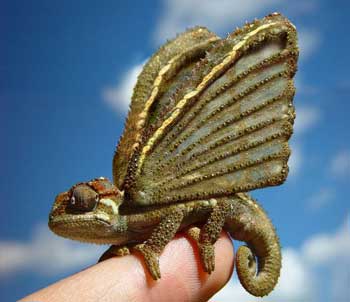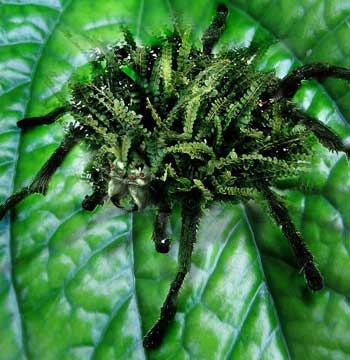For many years, humans have been enhancing organisms through selective breeding, like the seedless watermelons you get at the grocery store or the purebred dog in your neighbor's backyard. However, we have now moved a step further to a type of genetic modification, in plants for example, that have raised concerns.
Genetically modified food is defined as: "foods produced from organisms that have had changes introduced into their DNA using the methods of genetic engineering".*
For example, say you are a tomato farmer whose crops are threatened by a persistent species of beetle. Each year, you spend large sums of money for pesticides to protect your crops. A biotechnology company introduces a new strain of tomato plant that produces a natural pesticide, making it resistant to the beetle. By switching to this new strain, you could avoid both the beetle and the chemical pesticides traditionally needed to fight it.
Technology now allows us to transfer genes between organisms. This process is basically a sophisticated version of a cut-and-paste operation. Once a desired gene is found in the native organism's DNA it can be cut out and pasted into the DNA of the target plant. Once the new gene has been introduced, the plant can be bred to create a new strain that passes the gene from generation to generation. Simple, right? Simple, but risky.
The potential of genetically modified food is obvious, as described in the tomato example. There are many advantages to having a beetle-resistant tomato, or vitamin A-infused rice or Ice-minus strawberries. However, one primary concern of this process is cross-breeding with wild populations. What would happen if the genetically modified version mixed with the natural, wild population? We need to learn more about this since scientists don't know the full effects yet. After all, it would be very difficult to prevent natural versions of a plant from breeding with modified versions in the wild, since it would be impossible to stop the transfer of pollen. Still, we definitely don't want to start mass-producing genetically modified plants until we figure out what kind of long term dangers this would pose.
Secondly, there is potential for allergic reactions to occur. Many humans suffer from various food allergies. There is concern that the protein products of introduced genes may be toxic or allergenic to certain individuals. As a recent recipient of food allergies, I wouldn't want to find out that a new, modified of variety of some food would cause me to have an allergic reaction because that preciously harmless food now contains something I'm allergic to. As we lose the old, natural varieties of food to the modified versions, we also lose their useful genes.
Lastly, let us forget about science for a moment. I personally think that genetic experimentation on plants and animals produces several genetically modified organisms (GMOs) that are unnecessary and, quite frankly, disgustingly unnatural. Here are pictures and descriptions of a two examples:
Umbuku lizard: As listverse.com describes it: "This GMO was designed to simply prove that it could be done. Genetic Engineers in Zimbabwe managed to unlock a dormant 'flying' strand in the DNA of the Umbuku lizard, a very small and rare lizard native to Africa. It is believed that the lizard is a descendent of the Pterodactyl, which lost its ability to fly some [years] ago. To date, only 6 of these flying Umbuku have been produced and they are kept separate from the natural Umbuku due the risk of cross breeding".
Fern Spider: According to listverse com: "This is the only animal that has successfully combined a plant and an animal. It is a cross between an Italian wolf spider and the conga fern, and was done to study the survival rates of spiders with built in camouflage versus those without in a series of studies on Natural Selection at Massey University in New Zealand. The results of that study have not yet been released".
So, do the benefits of GMOs outweigh the cons? That's something that we have to decide, based on both scientific and nonscientific factors. Share your opinion in the comments section below!
*Sources: definition from Wikipedia, images from listverse.com, scientific description from learn,genetics.utah.edu


No comments:
Post a Comment